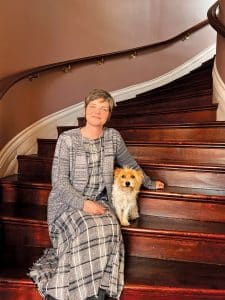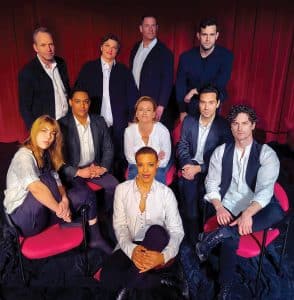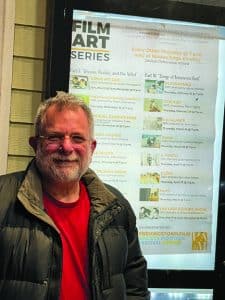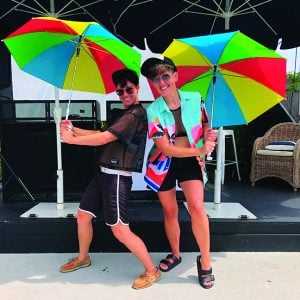The New Generation of Trans Kids
by Rebecca M. Alvin
“If you don’t identify as trans, you’re setting yourself up for failure if you think you’re going to be able to understand what it’s like to be trans, because I can’t understand what it’s like not to be,” declares Tony Ferraiolo, a transgender man who has been committed to offering support to transgender youth for over 10 years now through his support groups in Connecticut. But not understanding what it’s like doesn’t mean there isn’t a role for parents, families, and the broader community to play in taking care of transgender youth. Indeed it is a case where the adage “It takes a village to raise a child” is profoundly true. “I respect people who are not trans. I just let people live their authentic selves, because I know what it’s like when you’re in that darkness and you walk through to the light. I know what it’s like to be trapped in a situation where you can’t change and then being able to change,“ he says.
Ferraiolo will be in town this week for Fantasia Fair, the longest running annual conference for transgender people, which is hosting a screening of the documentary about him, A Self-Made Man, on Thursday, October 19th. The film, directed by Lori Petchers, profiles Ferraiolo’s support groups, which began, he says, around 2008 with just a small group of teenagers you could count on one hand. Flash-forward to today and Ferraiolo says his teen groups are typically 15-25 kids at a time, there is now a group for kids under the age of 12 that provides support through creative art rather than talk, and he’s added a group for the parents, grandparents, and caregivers of the kids who attend his groups. And now they have just added a group for siblings of trans youth. “In March it will be 10 years, and we have served over 450 families,” says Ferraiolo proudly.
“I respect people who are not trans. I just let people live their authentic selves, because I know what it’s like when you’re in that darkness and you walk through to the light. I know what it’s like to be trapped in a situation where you can’t change and then being able to change…”
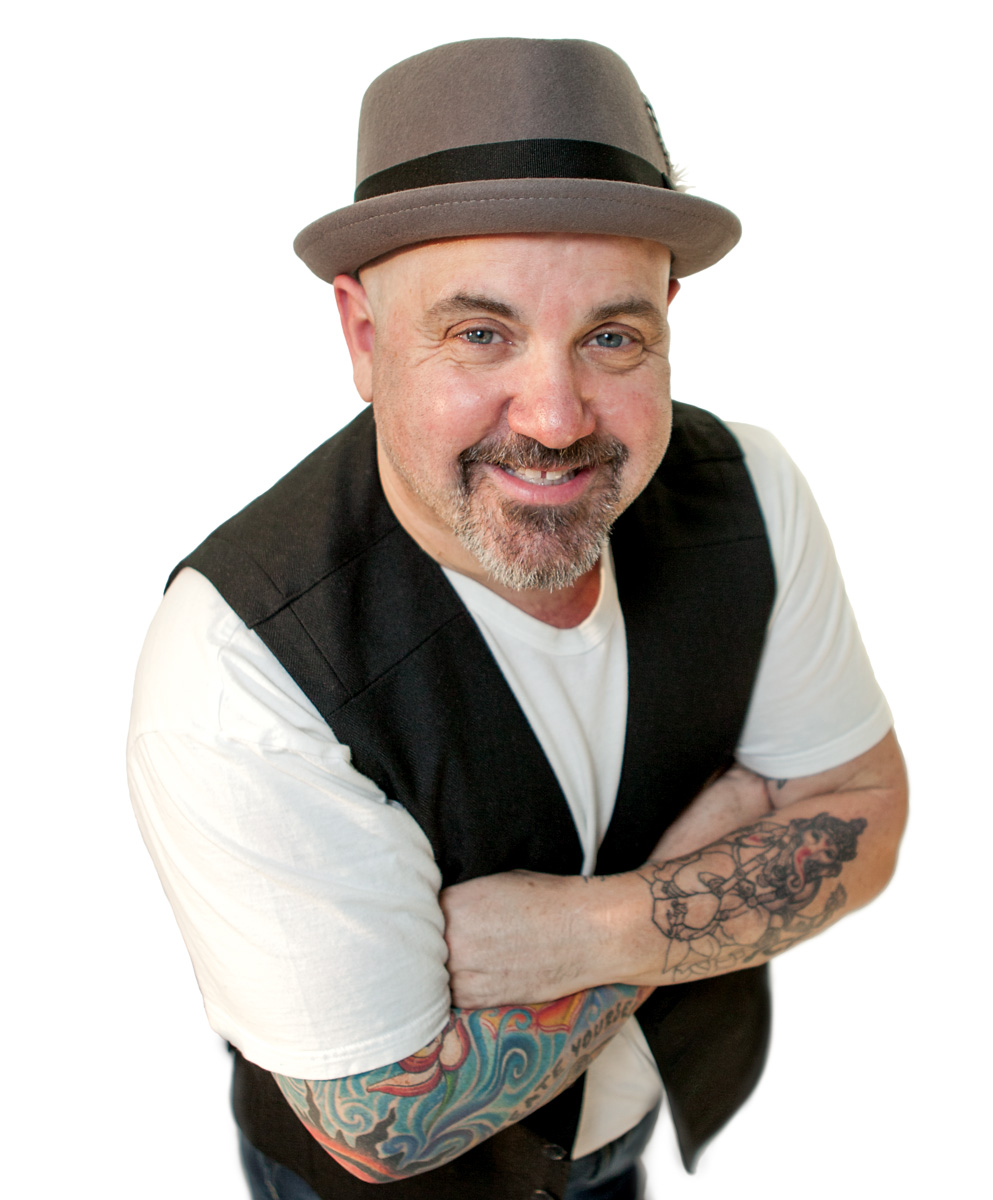
The subject of transgender youth is one that has been receiving increasing media attention as it seems more and more trans kids are coming out. As trans issues have become a part of mainstream dialogue with high-profile transgender celebrities such as Chas Bono, Laverne Cox, and of course, Caitlyn Jenner providing visibility where previously none existed, the conversations of gender have become much deeper and more complex in the public sphere.
“If you’ve met one transperson, you’ve met only ONE transperson,” explains Carole Mackenzie, a licensed clinical social worker (LCSW) and certified sex therapist with a private practice in Hartford, Conn., who sees many trans youth as well as adults, and who is on the Board of Directors for Fantasia Fair.
The idea of gender as a spectrum has only recently gained traction even in psychological circles, with new terms coming about regularly. Transgender is kind of an umbrella term, but there are numerous distinct identities within it, such as agender, bigender, genderqueer, gender-fluid, gender-expansive, gender-creative, and of course, the broader non-binary label. And even within the LGB community, there are still tensions around the T and Q parts of the acronym. Ferraiolo, who spent much of his adult life—before transitioning—as a lesbian club promoter in New Haven, says he is forever indebted to the lesbian community, and yet when he transitioned he did experience bigotry and insensitivity from within it.
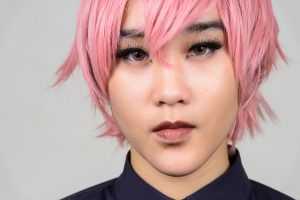
“I threw parties here [in Connecticut], in New York, in Northampton. I was a very well known club promoter, and people loved me, until I transitioned. I’m not saying all, I’m not saying the whole community, but I remember… I walked into a bar that I frequented all the time actually to promote an event–I think I was doing an art show because I’m an artist, and I walked by a table of lesbians that I knew. And one of them looked at me and said, ‘So do you still have a vagina, and do you shave it?’ And a bunch of them started laughing, and I felt like I was in the sixth grade again getting bullied. It was awful. And I turned around, and I remember my body was shaking, and I looked at her and I said, ‘Thank you for the opportunity to educate you. It’s inappropriate to ask anybody about their genitalia,’” he recalls. “And I remember walking out of that bar saying, ‘What the hell was that about?’ So here’s the reality. I was a lesbian. I read the handbook, chapter two, paragraph three: ‘you don’t hate men, you’re just not attracted to them.’ Let’s be real about it, it is hurtful to me. I still get it sometimes from a few people. They look at you like you betrayed the lesbian community. I was never a lesbian. The lesbian community saved my life. Because even though I didn’t feel I was a lesbian— because I knew you had to be a girl to be a lesbian, and everybody was telling me I was a girl—I didn’t know what transgender was, so at least I fit, as much as I can, into a community. If I didn’t have that community I would have offed myself years ago,” he says.
At times, those of us in the non-trans community—whether gay, straight, or otherwise—find ourselves struggling with language. Those of us who are farther along the path have gotten past the infamous bathroom issues that more conservative areas still struggle with, but when it comes to unfamiliar pronouns, calling people we formerly knew as boys by girls’ names, and carefully constructing our writing to avoid being insensitive to the ever-expanding list of labels along the gender spectrum, there is still a learning curve. Both Ferraiolo and Mackenzie see this particularly with trans youth for whom the language is actually incredibly important—essential, in fact.
“It’s the only thing they have control over. They don’t have control over what their bodies are doing. They don’t have any legal rights over their bodies. Medical decisions are sometimes made without them. It’s just like the pronoun and the name,” Ferraiolo explains. “It’s the only things they have control over. Call me ‘Tony’ and call me ‘he.’ They have no control over their bodies and if parents aren’t on board and they’re not getting the blockers they need, then their bodies are changing, they’re going through puberty, and that is the most dangerous part of a trans kid’s life is the puberty part… I always say to the parents, ‘don’t beat yourself up; it’s going to take a while. It’s going to take you time to get used to it, but before you know it, you’re going to be like, ‘Oh, my god, I don’t remember the last time I called Tony ‘Rose,’ or whatever.”
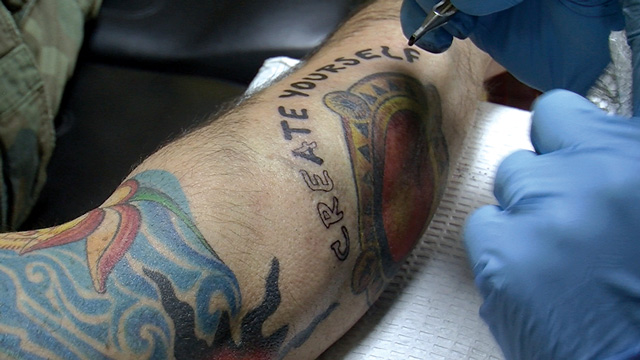
Teenagers can be particularly defensive about the language and not necessarily very understanding of parents and other adults who get it wrong. “They get really defensive if you call them by the wrong name or the wrong pronoun. They’re just like, ‘you’re so stupid!’” agrees Mackenzie. “I guess it’s just needing adolescent identity, and I don’t want to reduce it because I think it’s real important, but the language changes in everything all the time.”
Fantasia Fair this year is also offering a workshop for parents of trans youth led by Monica Perez, a human rights advocate with a focus on bringing LGB people into the social work field specifically to help transgender youth. Whether you are a parent, an uncle or aunt, or a teacher or friend to a young person who is trans, like it or not, you are playing a role in that child’s life and you can be of immense help.
For parents, who often have to make decisions that will affect their transgender children’s lives for a long time, sometimes the fear can be that perhaps their child is not transgender after all, but rather they are gay and not ready to come out as such.
“You don’t know when a child comes out very early,” Mackenzie says. “What you do as a therapist is you encourage their parents to let them do what they want to do. If they want to dress in dresses or play with trucks, just do it. There’s a percentage who do not turn out to be trans at all, who turn out to be gay…There’s terrible fear [on the part of parents]. They fear for their kids’ lives. They fear for their future. There isn’t a lot of long-term study on this. We don’t know what the hormones are going to do.” But, she says, parents need to not minimize the risks of doing nothing, either.
“You know what’s funny, everybody in the world’s got a gender identity, right? Everybody. But yet the trans community is the only community where people say, ‘How can you know that? How do you know? How do you know?’ We know just as you know, but you don’t really remember the moment you realized you were female probably because it wasn’t a disconnect,” says Ferraiolo. “So what happens if you have a child in your life that is four years old and says, ‘No, mommy I’m a boy’ or ‘No, auntie, I’m a boy, I’m not a girl,’ and then three years later they say–which has never happened in my experience with trans kids, but just say, they say, ‘No, no, no, I’m really a boy.’ What do you do? You love them anyway. You love them. That’s the biggest thing. Support them and believe them… Be that safe haven for that trans kid. You might be the only one that gets them. You might be the person that’s keeping them here on this Earth, you know.”
Fantasia Fair runs October 15 – 22 at various venues in Provincetown. A Self-Made Man will be screening at Fishermen Hall, 12 Winslow St., on Thursday, October 12, 8 p.m. followed by Q&A with Tony Ferraiolo. He is also presenting workshops on artistic expression and transgender youth on Friday, October 20, 10 a.m. Carole Mackenzie will be facilitating a number of discussions for cisgender as well as transgender participants throughout the week, and Monica Perez’s workshop on parenting the transgender child takes place on Tuesday, October 17 at 3 p.m. The screening of A Self-Made Man is free and open to the public, but most Fantasia Fair events require registration in the conference, which can be done online at fantasiafair.org or at The Boatslip, 61 Commercial St., Provincetown. For more information on the Fair call 203.701.9676 or email [email protected].


